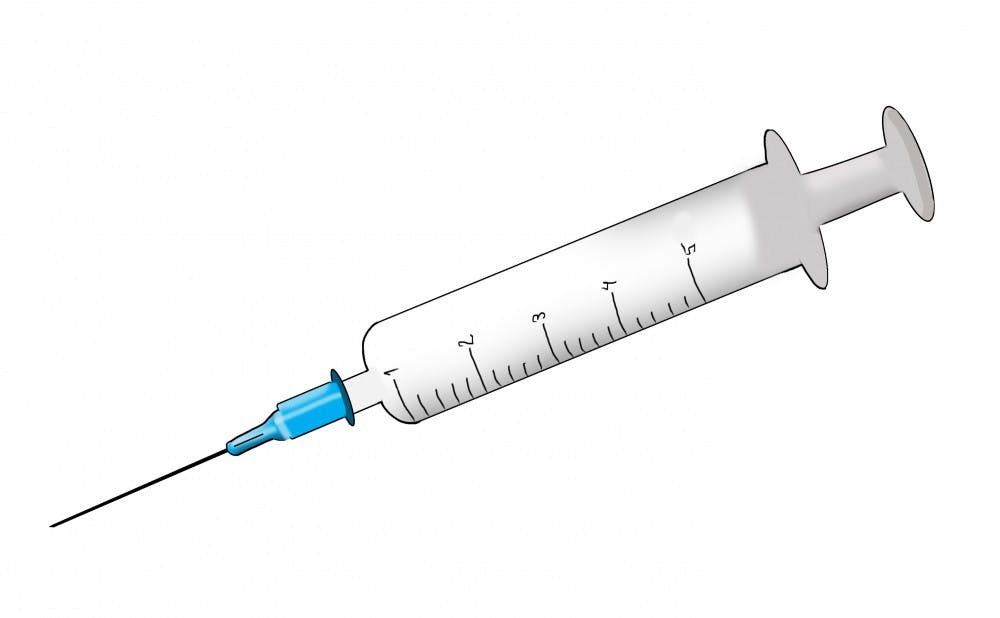Breast cancer is a painful illness to endure and a painstaking one to treat, but a team of Duke researchers may have found a two-part solution that could help treat the disease.
The researchers, including Herbert Kim Lyerly, the George Barth Geller distinguished professor of cancer research, and Zachary Hartman, an assistant professor of surgery, have developed a vaccine that targets HER2, a protein found on about 20% of breast cancers. The vaccine has so far produced promising results when paired with existing drug therapies.
The vaccine is currently in Phase 2 of its three-phase testing program. While Phase 1 tests are very limited in scope, giving a new treatment to a small group to test general safety and determine whether there is any immune response to a vaccine, Phase 2 is more extensive.
“Phase 2 is when you know that the vaccine or the drug is relatively safe and you have some idea of what dose to give,” Lyerly said. “Then you give it to more people and you say: Is there any evidence that this is going to be beneficial to patients?”
The team are now in Phase 2 testing of their potentially effective solution that helps stimulate an immune response to breast cancer—a vaccine that would precede the existing therapeutics to treat the illness. The problem with current HER2 therapies is that they can be quite expensive, and sometimes they have toxic side effects, according to Lyerly.
So far, one patient has been vaccinated in Phase 2, according to Hartman.
The vaccine will stimulate the proliferation of T cells, which play a key role in the immune response.
“The vaccine will stimulate an immune response and your body will start to generate T cells, and these T cells will be killer cells. But the tumors, over the past five or 10 years, we found that the tumors actually produce an immunosuppressive environment that prevents these T cells from functioning,” Lyerly said.
Because of that immunosuppressive response, the new vaccine has been paired with drugs that restrict immune suppression.
“When you have the T-cells ready to fight the cancer and then you have the drug that prevents the immune suppression—they would call these immune checkpoint blockades—that combination really works unbelievably well,” Lyerly said.
Previously, in Phase 1, the researchers vaccinated patients with advanced breast cancer and measured their blood to show if it contained antibodies against HER2-positive breast cancer. Nineteen patients were vaccinated in Phase 1, Hartman said.
Since the vaccine has been demonstrated to be safe, the goal is to combine it with an existing therapy that has Food and Drug Administration approval.
The vaccine also holds potential to improve therapies for cancers other than HER2-positive breast cancer.
“This ability to allow the T cells to function—that combination is really enabling this new era of vaccines and immune checkpoint blockade,” Lyerly said. “And, so it would be possible that this type of therapeutic strategy would have broad applications and help women around the world that have HER2 positive cancers as well as other cancers.”
Hartman noted that several other cancers have HER2 expression, including gastric cancer, and that other cancers have similar receptors.
“My father was diagnosed with prostate cancer, and that, probably as much as anything, sort of spurred my interest in using vaccines to combat cancer,” Hartman said. “Other targets and other cancers using the same kind of approach as our vaccine may be effective.”
Get The Chronicle straight to your inbox
Signup for our weekly newsletter. Cancel at any time.

